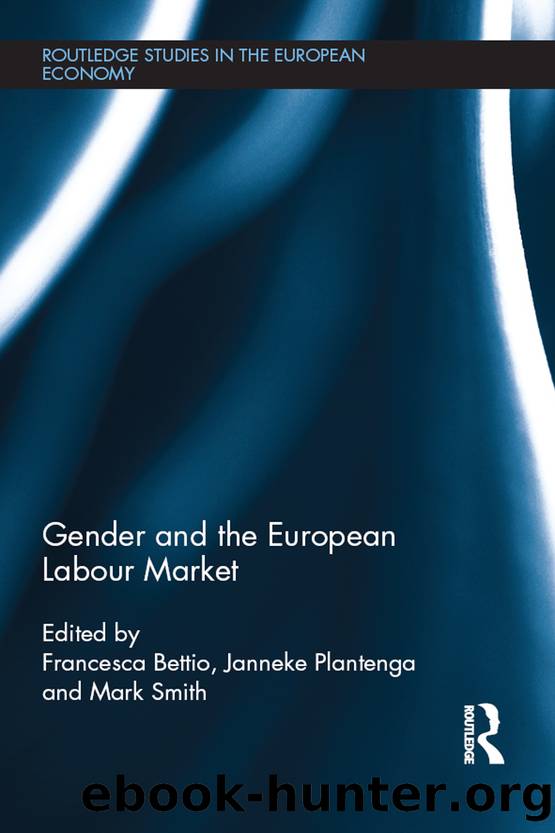Gender and the European Labour Market by Bettio Francesca;Plantenga Janneke;Smith Mark;

Author:Bettio, Francesca;Plantenga, Janneke;Smith, Mark;
Language: eng
Format: epub
Publisher: Taylor & Francis Group
Reducing care costs by tolerating irregularity
The Austrian regularisation law
The Austrian care allowance â which is provided by the insurance for dependency (Pflegegeld) and reaches about 380,000 people â covers only basic needs (though it may be supplemented by social assistance). The necessity for many families to cover 24-hour care has given rise to a flourishing grey market, fuelled by illegal immigrants organised on a rotating basis of two-week shifts. It has been estimated that, at the time when the amnesty law was passed, there were about 30,000 (irregular) carers employed on a 24-hour basis, caring for 15,000 families.24
In July 2007 a law was passed that aimed at regularising 24-hour migrant workers. Comprehensive coverage of care needs would have been too costly: thus the law applies only to the medium and most severe levels of disability (levels 3â7) and the subsidy does not cover the whole cost of care, but only the extra cost connected with legalisation (that is, social security contributions, which differ according to the type of contract) (Table 7.7).25
Even after adding the LTCI allowance (last column in Table 7.7), the remaining cost for a carer hired by an NGO or even by the family may still be too high for a lower-middle-income family. That is why, although the law proved a great success â with 75 per cent of attendants regularised in the two years since its approval â the overwhelming majority of regularisations were to be found among freelance workers. By January 2010 the scheme covered 22,000 freelance workers but only 500 employed carers. Although the law provides for some education and training, it does nothing to improve migrant carersâ pay and working conditions, raising concerns that, with the end of transitional regulation of migrant flows, carers will move to other more rewarding or less exacting sectors, or to higher wage countries, leaving families without attendants.
Download
This site does not store any files on its server. We only index and link to content provided by other sites. Please contact the content providers to delete copyright contents if any and email us, we'll remove relevant links or contents immediately.
Zero to IPO: Over $1 Trillion of Actionable Advice from the World's Most Successful Entrepreneurs by Frederic Kerrest(4074)
Machine Learning at Scale with H2O by Gregory Keys | David Whiting(3659)
Harry Potter and the Goblet Of Fire by J.K. Rowling(3619)
Never by Ken Follett(3549)
Ogilvy on Advertising by David Ogilvy(3351)
Shadow of Night by Deborah Harkness(3182)
The Man Who Died Twice by Richard Osman(2822)
Book of Life by Deborah Harkness(2726)
My Brilliant Friend by Elena Ferrante(2707)
How Proust Can Change Your Life by Alain De Botton(2620)
0041152001443424520 .pdf by Unknown(2608)
Will by Will Smith(2593)
The Tipping Point by Malcolm Gladwell(2566)
How to Pay Zero Taxes, 2018 by Jeff A. Schnepper(2505)
Purple Hibiscus by Chimamanda Ngozi Adichie(2502)
Hooked: A Dark, Contemporary Romance (Never After Series) by Emily McIntire(2428)
Rationality by Steven Pinker(2159)
Borders by unknow(2121)
Daughter of Smoke and Bone by Laini Taylor(2086)
